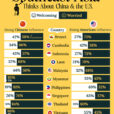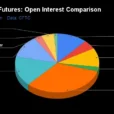
The Organization For Economic Cooperation and Development (OECD) is urging the nations of the world to be prepared for and have a coordinated plan to simultaneously engage in major “fiscal stimulus” in the event of a downturn in the global economy.
“Fiscal stimulus” is how economists refer to a government substantially increasing spending, while holding taxes constant or even reducing them. By pouring more money into the economy, while not taking more money out (or taking even less money out), the theory is that the economy and employment will get a large and positive jolt, and that this jolt will hopefully create sustainable economic and employment growth rates that persist after the stimulus is gone.
In other words – the OECD is urging the aging and heavily indebted major economic powers of the world, to be prepared to act in concert to simultaneously and rapidly borrow more money to pay for the fiscal stimulus, and thereby rapidly increase their national debts (and ongoing budget burdens in paying for those debts thereafter).
This premise of this analysis is that what is “in play” with such recommendations is not just the abstractions of international economics, but properly understood, this is the sort of reality-based information that should potentially have a quite direct impact on individual decisions for long term investment strategies, as well as retirement planning.
This analysis is part of a series of related analyses, an overview of the rest of the series is linked here.
The Recommendation
As covered in a recent Wall Street Journal article titled “With Central Banks Out of Ammo, Governments Urged To Ready Stimulus for Next Downturn” (11/21/18, link here), the OECD is urging the governments of the world to prepare big and coordinated spending plans.
“Governments around the world must prepare spending plans they can roll out quickly and in concert should the global economy slow sharply, given that central banks have largely run out of ammunition to fight a slowdown, the Organization for Economic Cooperation and Development said.”
The reason for this recommendation is that the central banks of the world have not yet recovered from the last crisis, and they are currently “out of ammo” to fight another economic slowdown or recession.
“Central banks did most of the heavy lifting in steering the global economy out of the sharp slowdown that accompanied the financial crisis. But they are largely out of ammunition, the OECD said. Policy interest rates are already negative across much of Europe and Japan…”
“With central banks sidelined, it would be down to other parts of governments to provide the stimulus needed to support growth in a future crisis.”
Now, Laurence Boone, who is the chief economist for the OECD, was clear that they still officially expect a “soft landing”, even though they have reduced their forecasts for global growth in the next few years. (The OECD is also forecasting real economic growth for the U.S. slowing to 2.7% in 2019, and 2.1% in 2020.)
However, the OECD sees interlinked dangers from tariff wars, trade barriers, further deteriorations in emerging market economies and higher oil prices that could pose an imminent threat to the global economy. And they are therefore recommending that the nations of the world act immediately to develop coordinated spending plans so they can take quick stimulus actions in concert if and when needed.
Stacking Debt On Top Of Debt
Keeping in mind that “stimulus” by definition means major deficit spending which means major increases in the national debt – the OECD’s recommendation might seem more than a bit surreal to many people.
The United States is already more than $21 trillion in debt. Near term annual deficits are already estimated to be in the $1+ trillion range. Those annual deficits are already projected to sharply increase into the $2+ trillion range as aging Boomers increasingly claim their promised Social Security and Medicare benefits.
And over and above all of that, the OECD is urging that the United States and other member nations immediately set up contingency plans to quickly spend still more trillions upon trillions of dollars, and ramp up the national debts that much faster still.















